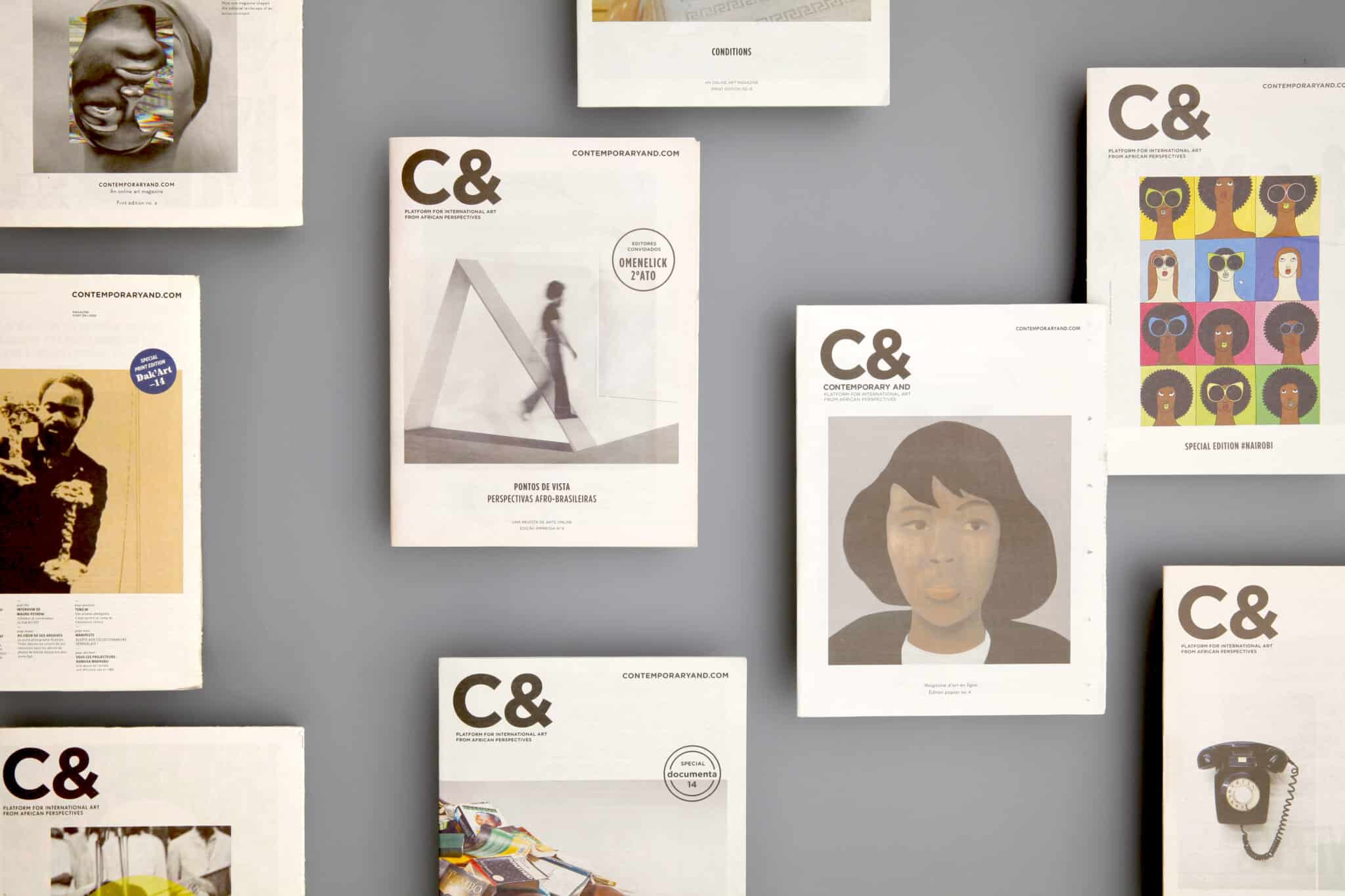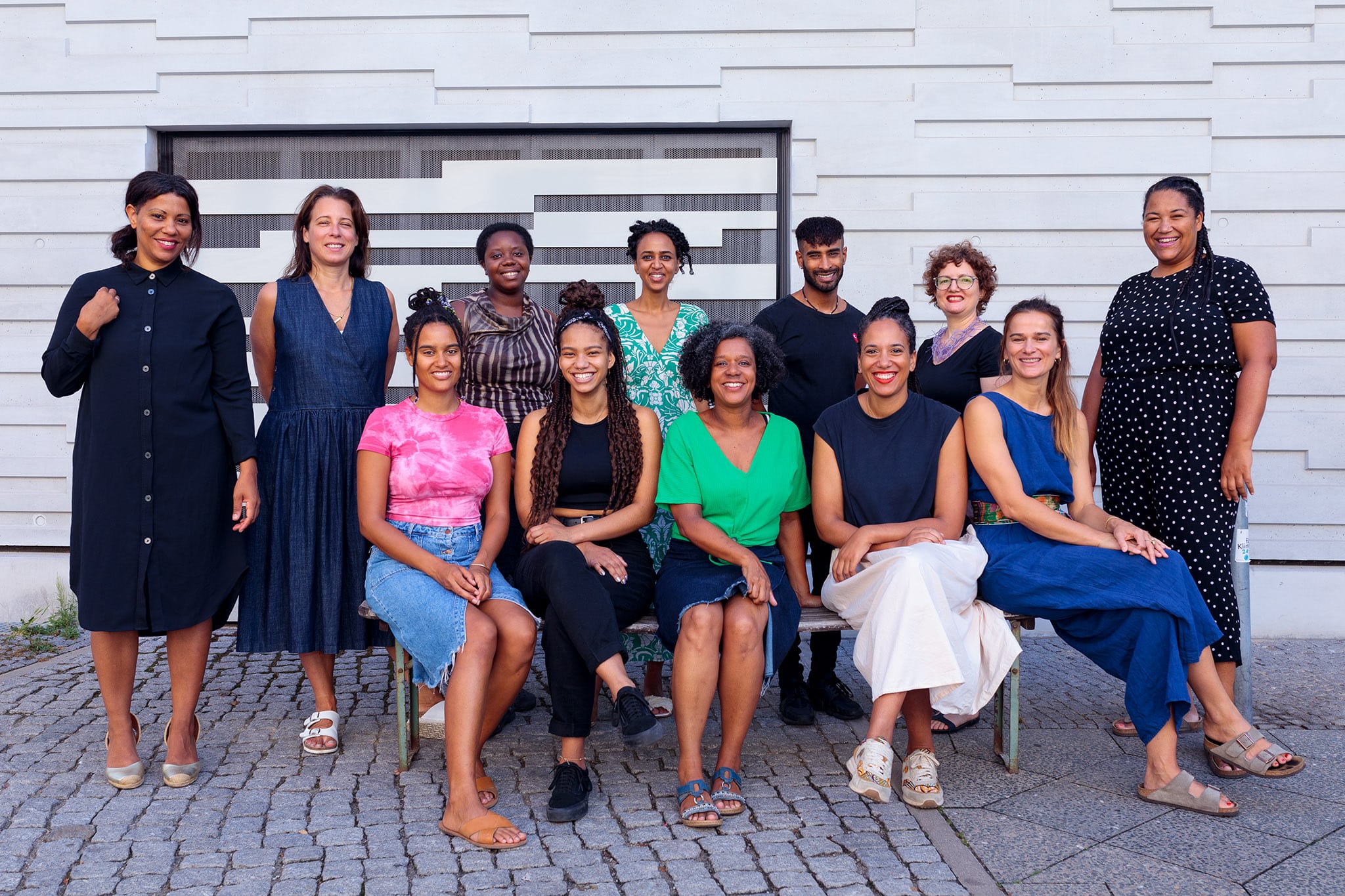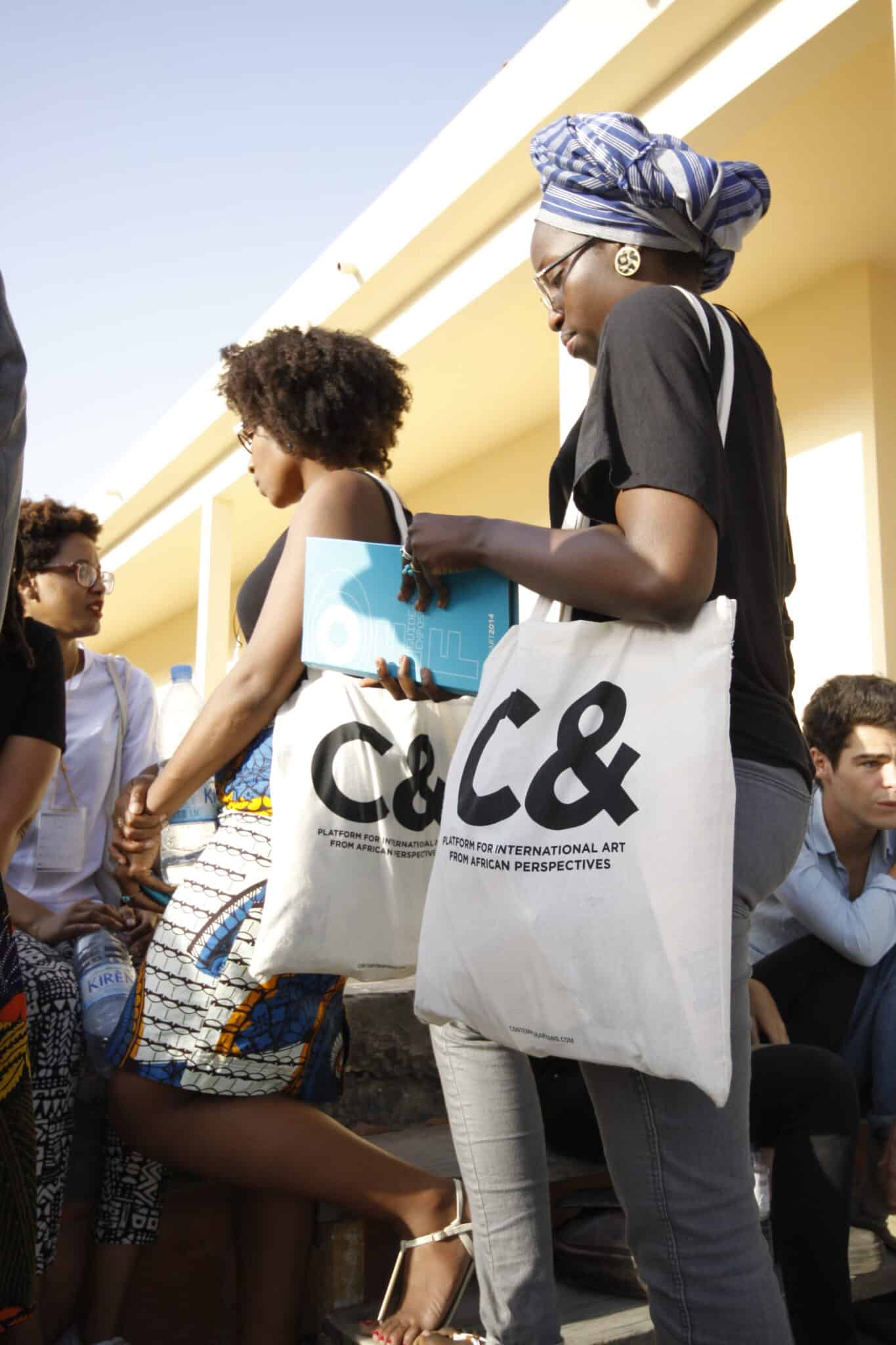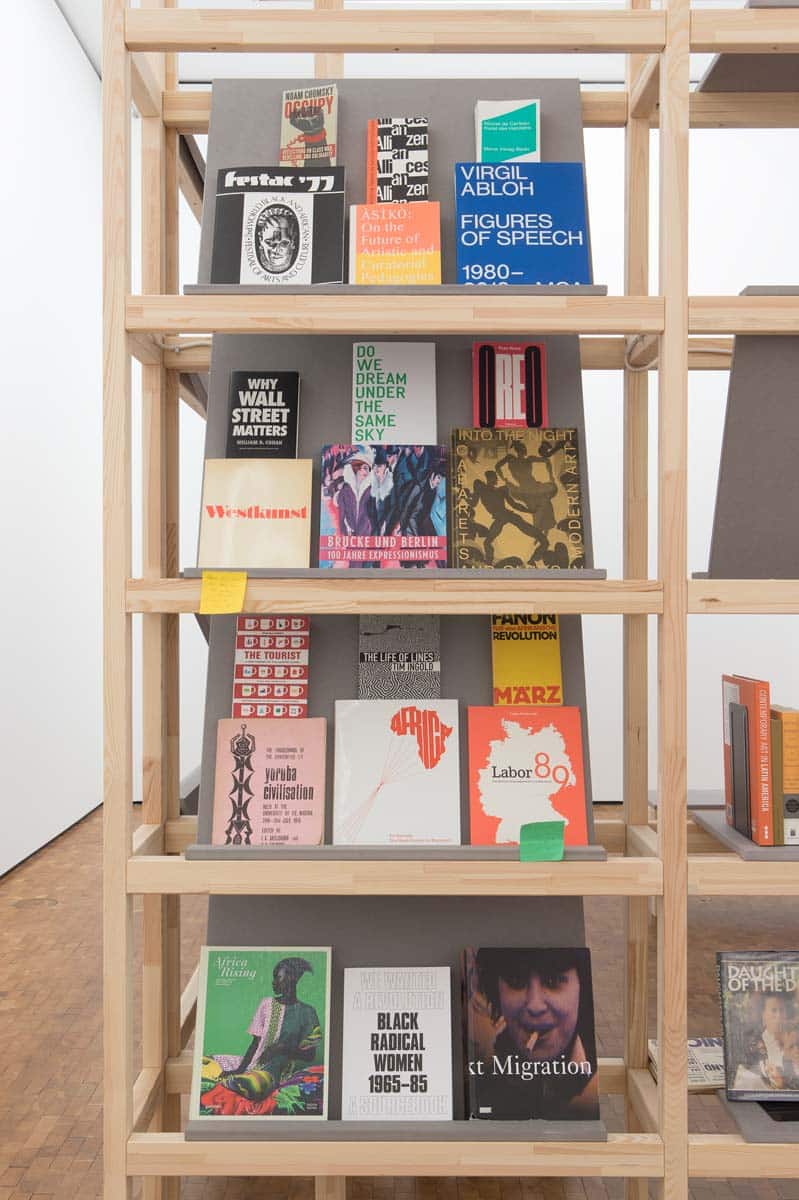The JOY Issue
Contemporary And – a Global Art Network for Africa and the Diaspora
Kemi Fatoba sat down with Julia Grosse and Yvette Mutumba to talk about their platform-turned-cosmos.
Images by BEHAN
Florian Bong-Kil Grosse
Contemporary &

Why did you decide to launch Contemporary And?
Yvette: In 2012, the ifa (Institute for Foreign Relations) - chiefly the former head of their visual arts department, Elke aus dem Moore - suggested setting up a platform for contemporary art from Africa. They asked Julia to come on board, and we took it from there, developing C& into what it is today.
Julia: At the time, other important magazines such as Nka from the US or Revue Noire from France had already paved the way in terms of focusing on artistic production from Africa and the diaspora. A digital platform, bringing together these enormously rich and complex perspectives in a non-academic and more broadly accessible way, did not yet exist. This was the idea and the reason behind launching C&.
C& started as an online platform but evolved into so much more. Can you give us an overview of what you are doing besides the online and print magazines?
Yvette: Yes – since its launch C& has expanded into various digital and analogue projects, which are all closely related to the content and idea of the magazine. Since 2016, we have facilitated critical writing workshops, mentoring programmes, and a number of other initiatives aimed at young art writers.
At the moment, there's a newfound interest in art and culture from the continent. Do you think it will have a lasting effect?
Julia: The so-called hype around visual art from African perspectives is something we had already experienced when we launched C& almost ten years ago. It was always clear to us that hype comes and goes, and that should never affect our vision. One of our visions is that, at some point, artists with an African perspective won’t get invited to group shows to make programmes more "diverse", but because the curator is genuinely interested in their artistic approach and practice.
What does it feel like to be a part of this shift?
Yvette: It feels like C& has contributed to this shift. Initially, people called us a “niche” project for “experts on Africa”. That’s no longer the case, and it's also reflected in our growing, broad readership. Through this shift, we have gained a different kind of confidence: Given that we literally cover the artistic production of an entire continent and its global diaspora, how could we ever have been considered niche? Despite the increased interest in art from the continent, so far, no other visual arts magazine is capable of matching what we're doing.

How do you navigate stereotypes about art from the Global South and the fascination with Black pain?
Yvette: C& is building an archive of parallel narratives, which centres on Black artistic production. It’s a space where artists and writers reflect on issues and debates that are relevant to them. Sometimes, this content purposefully takes on such stereotypes. More often, though, the broadness of artistic voices in Africa and the global diaspora goes far beyond stereotypes. So for us, it's about pointing out stereotypes without reiterating them.
In our current issue, we explore how underrepresented communities explore and experience joy while the world is seemingly going up in flames. Is there space for Black joy in the art world?
Julia: That's a big one… but obviously, we would say yes! There are many beautiful, meaningful networks for artists and art producers around the globe. It’s also fantastic to see global art events, such as the Biennale de Dakar, the São Paulo Art Biennial or the Yango Biennial of Kinshasa, becoming real places of encounter again.
Yvette: Oh yes, of course there is space for Black joy! Enjoying the company and work of Black cultural producers and empowering each other is key.


What are the things that bring you joy – professionally and personally?
Yvette: Professionally, it’s always a great joy to follow the development of young art writers and artists. As C&'s primary focus is on presenting artists that aren’t super established yet, it's fantastic to see people succeed in various ways. Another thing is getting feedback from C& readers – when they have a fan moment or comment on something we have published. These interactions are great, as we rarely meet the people who access our online platform. Personally though, the main things that bring me joy are my kids, my partner, our families, great friends, and good conversations.
Julia: Yvette mentioned all the essential things already. Spending time in nature also brings me joy and energy.
What's next?
Julia: Right now, we are involved in a big publishing project with four collectives from documenta 15. We'll publish our next print issue later this year, and we are also heavily brainstorming for our 10th anniversary in March 2023.
About C&
As a predominantly digital project, C& and C& América Latina have a substantial global network and physical offices in Berlin and Nairobi.
C& Workshops provide the tools for writing art reviews, comments, and essays. They have taken place in cities like Lagos, Nairobi, Lubumbashi, Luanda, Harare, and Detroit.
C& Mentoring Program is a six-month mentorship program connecting students with senior arts writers. The mentees receive a small stipend and the possibility of publishing selected texts in the online editorial sections of C& Magazine and C&AL Magazine. The C& Mentoring Program has connected mentors and mentees from Colombia, Egypt, Ghana, Morocco, Ethiopia, Kenya, the Democratic Republic of Congo, Angola, and Brazil.
C& Commissions is aimed at artists who create digital works or exhibitions, which will be showcased at C&.
C& Artists’ Editions is a program for specially commissioned editions from artists who are part of the C& network. The editions offer an accessible, collectable portfolio of works from new and established artists.
C& Center of Unfinished Business is a reading room, offering visitors an extraordinary and sometimes disconcerting selection of books linked to colonialism in various ways – from German colonies to Congolese fashion and capital markets of the twenty-first century. Since 2017, the Center has been travelling and connecting with various cultural institutions in Europe and the US.
Get DADDY in your Inbox
Stay in the loop by subscribing to our newsletter